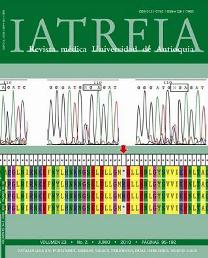Vector competence: Entomological considerations and its implications on the epidemiology of Dengue
DOI:
https://doi.org/10.17533/udea.iatreia.11128Abstract
Vector-borne diseases are a serious problem in public health, especially in tropical and subtropical areas where environmental conditions favor the survival and expansion of vectors into new habitats.
Dengue fever is one of the most important vector-borne diseases transmitted by arthropods (arbovirosis) worldwide. The etiologic agent of the disease is the dengue virus, which is transmitted by the bite of bloodsucking Aedes aegypti mosquitoes. The virus-vector interaction is essential for the efficient transmission of the disease, and depends on both, viral factors and vector competence or intrinsic vector capacity to be infected with the virus. Vector competence allows virus replication and subsequent transmission to susceptible hosts. Factors that influence vector capacity include: natural barriers to infection, immunological defenses as well as the presence of receptors for the virus. All these factors in addition to the viral characteristics will determine the degree of transmission. There is a need for a better understanding of the virus-vector relationship and its epidemiological implications. These issues are addressed in this article.
Downloads
Downloads
Published
How to Cite
Issue
Section
License
Papers published in the journal are available for use under the Creative Commons license, specifically Attribution-NonCommercial-ShareAlike 4.0 International.
The papers must be unpublished and sent exclusively to the Journal Iatreia; the author uploading the contribution is required to submit two fully completed formats: article submission and authorship responsibility.














